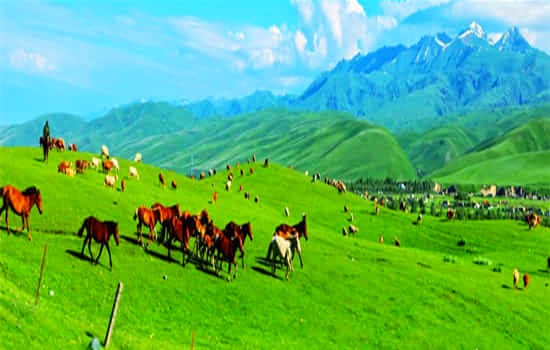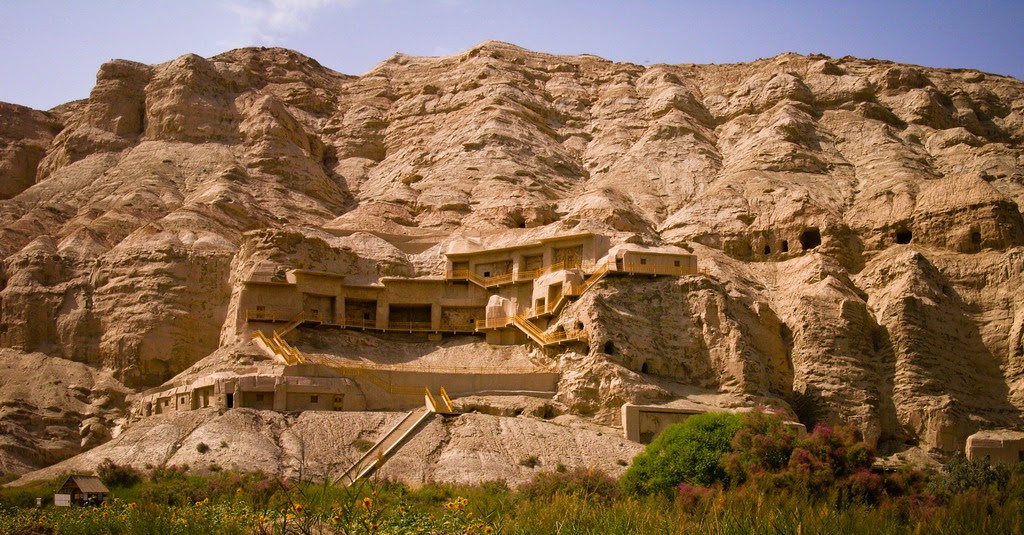 Karez is a unique
irrigation system mainly distributed in Turpan district in Xinjiang Uighur
Autonomous Region. Karez systems are the crystallization of ancient people's
diligence and intelligence. At its peak, this irrigation system exceeded
Karez is a unique
irrigation system mainly distributed in Turpan district in Xinjiang Uighur
Autonomous Region. Karez systems are the crystallization of ancient people's
diligence and intelligence. At its peak, this irrigation system exceeded
Karez systems are
the life source of Turpan. In a sense, without them, there would be no Turpan
culture. According to records, the history of the karez in Xinjiang dates back
to 103B.C. Karezes have been found in Iran ,
the Sahara , etc., but the ones in Turpan are
the most complete. Currently there are still over 400 systems.
Karez are very
delicate irrigation systems made up of vertical wells, underground canals,
above-ground canals and small reservoirs. Generally, a karez is 3 km (1.9 miles) with the longest being
20 to 30 km (12-19 miles)
with several dozen vertical wells. Sometimes the number of vertical wells
exceeds 300. Until today, the shortest karez found is only 30 meters (98 feet)
long. The vertical wells are for ventilation, digging and maintenance of the
karez. The bottoms of all the vertical wells are connected so that water can
pass through. The underground canal is about 2 meters (6.5 feet) high and
covered with earth to resist the heat. The surface canals, connected to the
underground ones, are not more than 1 meter (3.2 feet) wide with trees planted
on both sides to prevent evaporation.
Melting snow from
the Tianshan Mountain
There are more
than 1400 Karez wells in Turfan. They also play the roles of natural air
conditioner for the locals because they can sit in one while chatting or doing
some chores. When exhausted during the scorching weather, sit in a karez, pick
some grapes as they hang over the vertical wells and savour their taste, you
will be thoroughly refreshed! Karez System really makes you understand how the
people of Xinjiang have brilliantly managed the water supply in this desertic
land.
For more
information, please visit http://top-chinatour.com













































